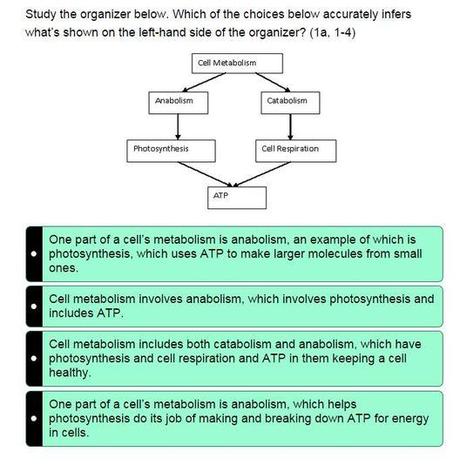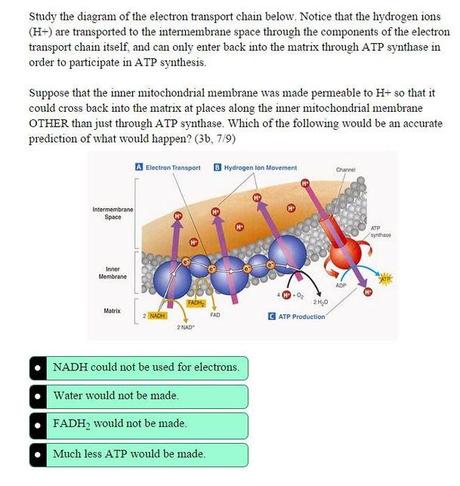"I'm all about the learning."
That's what I said to my principal during my last teacher evaluation conference. I wasn't just saying it because I was being evaluated; I would like to think I am quite learning-focused in my classroom. I require students provide me evidence of their understanding in various ways, with all evidence connected back to an I can statement derived from standards. In fact, I often tell them that their sole job is to show me that they know it in any way they can.
But what constitutes acceptable evidence of knowing? Of understanding?
According to my scoring scale, students have to own the knowledge - they have to make it their own, putting it in their own words, pictures, phrases, and diagrams. In the case of traditional-looking assessments, students must answer multiple choice questions that look like this:
But is this enough? Is this adequate evidence of understanding, when students can still hazard a guess and get it right? The more I teach the more I realize that multiple choice is an assessment method borne from convenience. While it can assess what students know, the whole "I can guess and still get it right" thing bothers me. (Along with the whole "standardized tests are full of these questions and a teacher's effectiveness is being partially based on them" thing, but that's a topic for another post.)
That's where student products come in. They may be writing, or talking, or a cartoon, or whatever options I choose on a choice board or a choice menu, but they are all products, something created by students to provide evidence that they know, understand, and are able to do.
But not all student products are created equal. Just because students make something doesn't automatically make it better. For example, before students were asked to eat at my Photosynthesis Cafe, an activity where they could choose how to demonstrate their understanding, I had students answer this journal a few days earlier. It contained a standard diagram of the phases of photosynthesis. Later on during the Photosynthesis Cafe activity, students that chose the model often produced "models" that looked EXACTLY like the diagram on that journal.
Tell me - is that evidence of understanding? I don't think so. In fact, if a student copies a diagram like that, I give them an automatic 7/10 on my scoring scale. Why? Because the learning isn't theirs. It doesn't belong to them yet. Some students told me that copying that diagram of photosynthesis was true evidence of understanding, because the diagram helped them understand it.
But when I asked them some probing questions about photosynthesis, allowing them to use the diagram-model they carefully reproduced for me, they couldn't answer those questions I got blank stares. And that's when I had to gently tell them that copying a diagram isn't really learning. It isn't real evidence of their understanding. And I had to make them go back and create their own models after they had reviewed the answers to the I can statements again.
I need authentic evidence of understanding - in their own words and in their own way. I'm not in the business of making concept copying machines in my classroom; I want students to make their own meaning and show it to me.
Real evidence of understanding - that's what we should be asking for in our classrooms.


